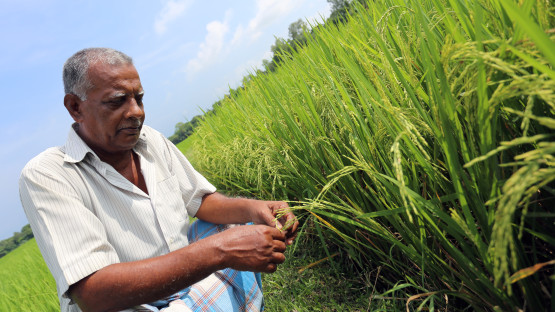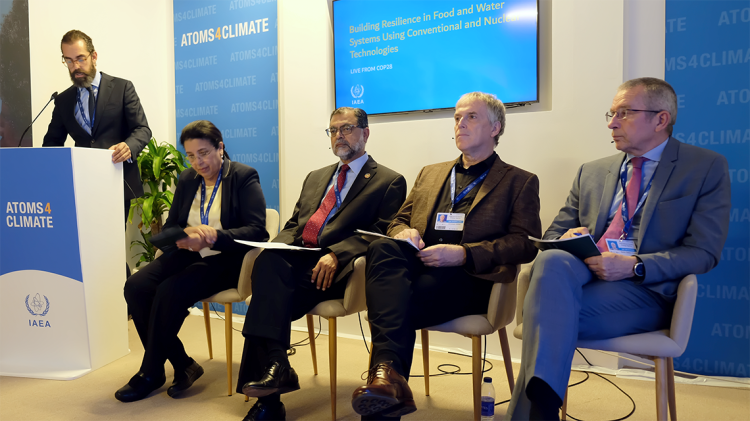A new international IAEA technical cooperation project, launched on 2 December 2023 at a United Nations Climate Conference (COP28) side event, will catalyze the IAEA’s existing climate adaptation activities in food and water security to harness the already expansive interregional networks of laboratories and facilitate international collaboration. The new climate adaptation project aims to support national efforts to ensure successful and sustainable solutions to the impacts of climate change.
Attendees at the side event heard panellists describe how extreme weather events around the world are affecting key natural resources. Floods and droughts, and the near disappearance of essential bodies of water mean that populations everywhere are having to do more with less. Nuclear techniques, the audience heard, work in combination with conventional techniques to help countries to tackle harsh climate conditions, providing accurate data that allows decision-makers to assess the evolving situation, and also offering a range of effective adaptation options.
“Without isotope hydrology we would know nothing about the effects of climate change on water resources. The same is true for greenhouse gas emissions – if we want to develop targeted mitigation methods we need to identify where they are coming from,” explained Professor Christoph Müller of Justus Liebig University, speaking at the event.
Participants at the IAEA COP28 side event also heard how the IAEA has been able to help farmers in Namibia precisely identify moisture levels in their fields using nuclear technology, enabling the successful deployment of drip irrigation techniques. By connecting nuclear technology with conventional agricultural techniques, participating farmers have been able to increase water use efficiency by 80 per cent. The IAEA also helps countries to apply other nuclear techniques for food treatment, insect pest control and plant breeding. At the moment, 146 countries are working with the IAEA on technical cooperation projects that address climate change adaptation.
Panellists at the event lauded the importance of partnerships in implementing sustainable and far-reaching solutions to climate change challenges, including through the provision of funds for technical cooperation efforts. “We recognize that we need to scale up our engagement in the development sector and that we need to use technology to make crops more resistant to drought and other things,” said Zamir Iqbal, Islamic Development Bank Vice President of Finance. “We believe in the technology being promoted by the IAEA – we can make good use of it and our member states can benefit from it for sustainable development,” he added.







